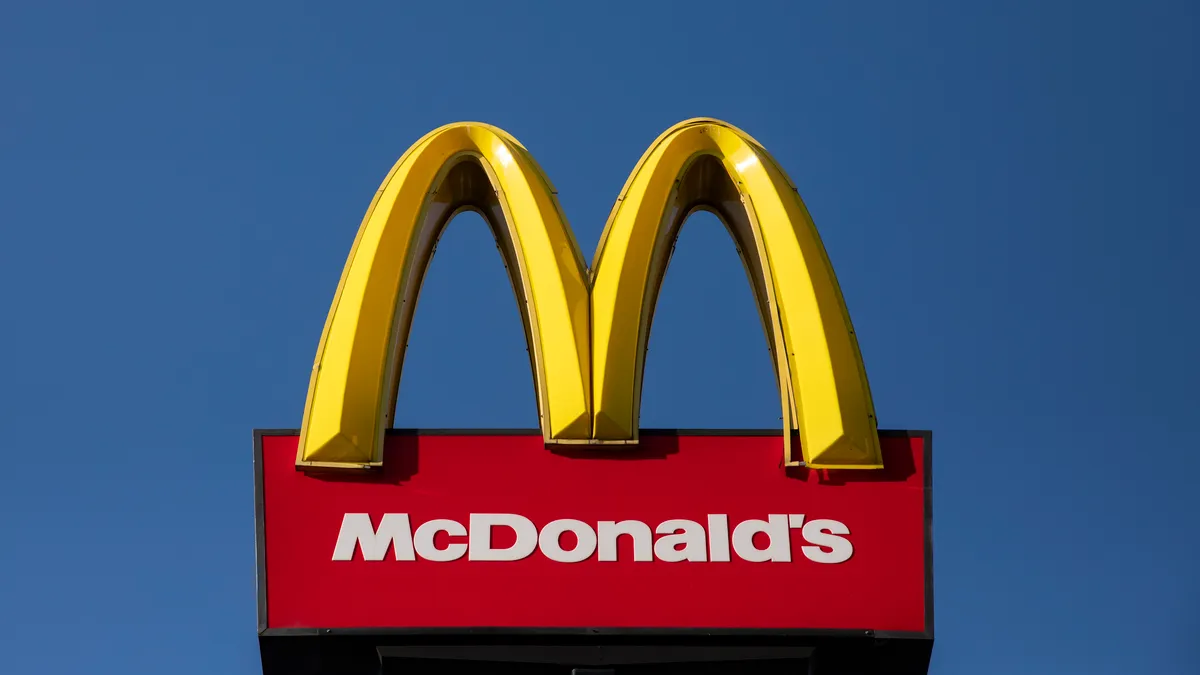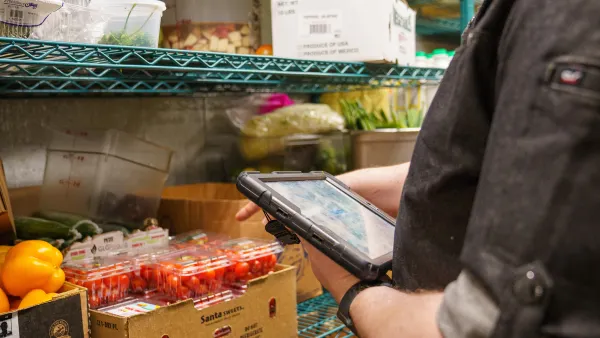Dive Brief:
- McDonald's CEO Chris Kempczinski said at the CNBC Evolve Global Summit Wednesday "there's no doubt that $7.25 in this day and age is not what you should be paying ... to be competitive in the marketplace." He suggested that regardless of whether a $15 minimum wage is mandated through legislation, wages will rise on the strength of the economy.
- McDonald's previously announced it would hike its wages to $15 per hour by 2024 at its corporate stores, and Kempczinski added this move is partially in response to Target, Walmart and Amazon shifting to $15 hourly pay because "that's a talent pool that we're competing with."
- Kempczinski said he anticipates dine-in sales, which currently drive roughly 25% of its U.S. business, will bounce back after the pandemic. But the company's recent investments in automation both at the drive-thru and in the kitchen could allow the chain to rely on fewer employees to serve its on-premise and off-premise channels, which could help balance increased labor costs.
Dive Insight:
McDonald's simultaneous investment in higher wages and labor-saving innovation reflects the current pressures of the labor shortage, but also hints at how the industry at large could shoulder the impact of increased pay.
Earlier this month, the chain announced it's piloting drive-thru voice technology at 10 Chicago restaurants that allows computers to collect orders instead of employees. The technology is 85% accurate, and only about 20% of orders at these locations require human intervention. At the time, Kempczinski said he expects the solution to be scaled across McDonald's U.S. network in the next five years.
This could be an opportunity for both corporate stores and stores owned by franchisees to save on labor. McDonald's wage increases only impacts employees at its corporate stores, or roughly 36,500 workers, but operators may be pressured to hike their hourly pay as well to weather the labor crisis and stay competitive long-term.
Some McDonald's operators have struggled to attract workers over the last few months amid robust unemployment benefits and an exodus of employees from the restaurant space seeking more stable jobs. Earlier this summer, a photo of a McDonald's restaurant advertising a free iPhone to new employees after six months on the job went viral.
This dynamic — and the McDonald's effect in general — could speed up a trickle down of more robust hourly wages to smaller chains and independent operators.
"We respond to where the market is moving," Kempczinski said.













